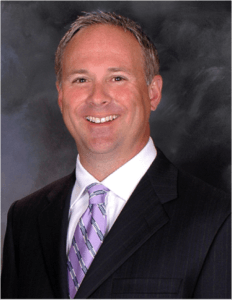$1 Million Isn’t What It Used To Be
By Jeff Gilbert
It used to be that $1 million was synonymous with financial security and success. Unfortunately, those days are over. While $1 million is still a considerable amount of money, it may not provide the independence you dream about. With the impact of rising living expenses, healthcare costs, and unexpected life circumstances, $1 million in your savings account might not get you as far as you’d think. Here’s why.
Big Bad Inflation
Put simply, inflation erodes your money’s value. Inflation has often been nicknamed the silent retirement killer because so many people forget to account for it in their income planning. While there’s not much in life that’s guaranteed, inflation is a certainty. Over the last 50 years, the cost of goods and services has increased an average of 3.7% per year. (1) Let’s say inflation continues to average 3% a year. In 40 years, $1 million will be worth $306,000 in today’s dollars, and that’s definitely not enough to buy you a comfortable 30-year retirement.
To put these numbers in perspective, let’s look at history. If you wanted to have the same purchasing power as a millionaire from 1914, you would have needed $3 million in 1980. But here’s the shocking number: in 2019, you would need $25 million to match the $1 million of 1914. (2)
Rising inflation tends to happen so gradually that it’s hard to see the effects of it on your wallet year to year. When saving for retirement, you need to calculate that effect forward anywhere from 10-50 years in the future. So if a new car costs around $5,000 in 1980 and $34,000 in 2019, you could find yourself spending over $65,000 to upgrade your vehicle in 2041. (3)
Protect Your Retirement From Inflation
We can’t predict the future, but we can prepare well based on historical data. Since you need your retirement savings to last as long as you do, implement these potential solutions in your financial plan.
Stick To Conservative Withdrawal Rates
Since you know that stocks have historically earned an average of 7-8% a year, you might assume that you can afford to withdraw 7-8% of the initial portfolio value (plus a little more for inflation each year). (4) But in reality, to protect against the uncertainty of the market, you may need to limit your withdrawals to less than 4%. (5) Because there is no simple, one-size-fits-all plan, you need to figure out what will work for you and your unique situation, taking various factors into account, such as time horizon, risk tolerance, asset allocation, and unexpected living expenses.
Set Up Contingencies
There is sophisticated software available to factor in inflation and calculate how long your money will last based on where you live, which withdrawal rate you choose, and what the markets will do. But there are some things a computer just can’t predict, such as your health.
According to the Employee Benefits Research Institute, the average couple at age 65 will require anywhere from $151,000 to $255,000 just to cover their healthcare costs in retirement. (6) Build contingency funds over and above your regular retirement account to give yourself a bit of a savings buffer. There will always be unexpected expenses in life, whether it’s needing a new car, home repairs, or unexpected long-term care expenses. Planning ahead will give you peace of mind.
Save More And Spend Less
The longer your planning horizon, the more resources you will need for retirement. The most obvious way to lower the risk of outliving your money is by saving more before you retire and underspending when you reach retirement. If you have any debt, focus on reducing it as much as possible so your resources can be devoted to saving.
Adjust Your Mindset
Retirement often means major lifestyle changes. As a result, your expectations may need to change as well. If you want a comfortable retirement, you may have to rethink how much you will be able to give your children as a down payment on a house or an inheritance.
You may even need to downsize your home or relocate to a more affordable area. Cost of living varies drastically across the U.S. When you are determining how much money you need for retirement, location can make all the difference. For example, if you live in California, $1 million (in today’s dollars) will only last about 15 years and 6 months. But if you live in Mississippi, it’s estimated that $1 million will last almost 26 years because of affordable living expenses that fall below the national average cost. (7)
Stay flexible and be willing to make adjustments in order to secure your financial future and stretch your wealth as far as possible.
Secure Your Retirement
It can be disheartening to look at the numbers and realize that what you were aiming for is not enough. But by making small changes now and planning ahead, you can set yourself up to experience the retirement you dream of. Use these pivotal years to implement strategies to protect, grow, and transfer your wealth. If you want a customized financial plan to get you from point A to point B, Balboa Wealth Partners is here to help. Give me a call at 949-445-1465 or email me at [email protected] to set up a no-obligation meeting.
About Jeff
Jeff Gilbert is the founder and CEO of Balboa Wealth Partners, a holistic financial management firm dedicated to providing clients guidance today for tomorrow’s success. With nearly three decades of industry experience, he has worked as both an advisor and executive level manager, partnering with and serving a diverse range of clients. Specializing in serving high- and ultra-high-net-worth families, Jeff aims to help clients achieve their short-term and long-term goals and to worry less about their finances and more on their passions in life. Based in Orange County, he works with clients throughout Southern California, as well as Arizona, Oregon, and Washington. To learn more, connect with Jeff on LinkedIn or email [email protected].
Advisory services provided by Balboa Wealth Partners, Inc., an Investment Advisor registered with the SEC. Advisory services are only offered to clients or prospective clients where Balboa Wealth Partners and its Investment Advisor Representatives are properly licensed or exempt from registration.
Securities offered through Chalice Capital Partners, LLC, member FINRA, SIPC.
Balboa offers advisory services independent of Chalice. Neither firm is affiliated.
__________
(1) https://www.usinflationcalculator.com/inflation/historical-inflation-rates/
(2) https://www.dollartimes.com/inflation/inflation.php?amount=1000000&year=1970
(3) Estimating 3% inflation rate. https://www.financialsamurai.com/are-you-a-real-millionaire-3-million-new-1-million/
(4) http://www.simplestockinvesting.com/SP500-historical-real-total-returns.htm
(6) https://www.ebri.org/pdf/notespdf/ebri.notes.oct13.retsvgs1.pdf
(7) https://www.gobankingrates.com/investing/how-long-million-last-retirement-state/2/



